




Fast fashion is a business model where companies produce as much clothing as possible, for as cheap as possible. Despite decades of discussion about the human rights and environmental implications of this model, recent online trends where people show off their haul of bulk-bought clothing suggests it isn’t going away. To kick off our sustainability issue, let’s break down what it is and its impact.
While a $10 t-shirt may seem like a good deal, it’s worth considering what it costs to make it.
It is likely a piece of fast fashion, where companies sell as many clothes as possible for the cheapest price by having them made in countries with more relaxed employment laws. This can have human rights and environmental impacts at every stage, starting with the farm where the cotton for that shirt was grown.
China produces the largest amount of the world's cotton. 20 per cent of that comes from the Xinjiang region where the Uyghur community are forced to work on farms. The true extent of this, and other human rights and environmental issues, are not known because there is very little transparency within the industry.
Tearfund's 2021 Ethical Fashion Report found 87 per cent of companies didn’t know where their fabrics came from, and only 71 per cent knew where they were even manufactured. What we do know is that garment workers frequently work 10 to 16 hour days, six days a week, for nearly three times less than their country’s living wage.
In Asia and the Pacific there are 65 million garment workers, and most of them are women. In 2019, 40 per cent of clothes imported into New Zealand were estimated to be made using forced and/or child labour.
As fast fashion has become more common, the amount of clothing has increased dramatically. It is estimated that 80 billion garments are now produced worldwide every year.
Fast fashion has created a culture of flippancy and waste around clothes. People keep clothes only half as long as they did two decades ago, and an estimated two thirds of clothes produced each year end up in the landfill. Nearly 35 million kilograms of clothes are dumped each year in New Zealand, accounting for nine per cent of Auckland’s landfill. This is expected to rise to 14 per cent by 2040.
As well as waste, slowly decomposing clothing also creates a lot of emissions. New Zealand’s collective textile waste emits the equivalent of 144,770 flights between Auckland and London.
I’m not telling you how to live your life, but I am telling you to weigh up the options. So, when you’re considering whether or not to buy that t-shirt, think about how much you’ll truly value it.
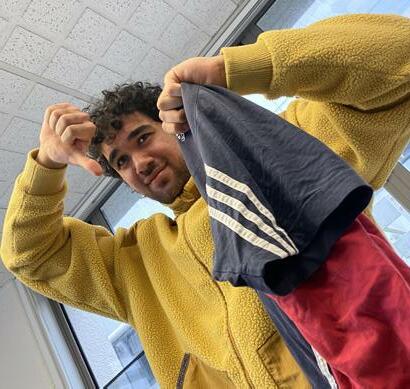
Sammy Carter (she/her) Elise Cacace (she/her)
With social media becoming a heavily integrated part of our lives, it is only natural that influencer culture is beginning to make waves. Nearly 70 per cent of Gen Z and Millennials follow at least one social media influencer today, whether that be a celebrity, fashion icon, climate activist or niche crocheter. Now, influencers and content creators are not just a virtual distraction but a relevant and wholly achievable career aspiration for young people.
Peyton Morete, a young Kiwi influencer and Massey student living on the Kapiti Coast, has over 114k followers
on TikTok. She says influencing is “changing the way we connect with people and the culture of society. People are able to share their passions and interests with everyone around the world and make a living off of it. It feels so much more creative and freeing.”
Many platforms such as TikTok have set up ‘creator funds’ specifically for encouraging people to create entertaining and engaging content. TikTok offers between two and four cents for every 1,000 views, which equates to about $20 to $40 per million views.
In contrast, a YouTuber can earn around $2 to $3 per 1,000 video views, with the average pay falling around $2000 to $3000 per million views. As well as earning money directly from the platform, social media influencing generates other types of income.

“I have a lot more opportunities presented to me, like working with brands to make some extra money and being able to go to events. I also love that when I’m down and want a break, I still have a little community watching and loving my videos. It helps me bounce back,” says Morete.
Although being a social media influencer seems like the perfect job for young creatives, it is not all smooth sailing. Brent Ireland, Collab Digital Managing Director says, “You hear more stories of people being cancelled in this day and age because social media users, generally speaking, are just so sick of the bullshit. They can see through it all and at the end of the day they’re not afraid to call people out.”
The career-ending cancel culture of this generation has left both
successful and aspiring influencers questioning the economic sustainability of the profession.
“Cancel culture nowadays is so intense, people can become very blood thirsty in cancel culture. Once you’re cancelled there’s no redemption,” says Morete.
“When my videos start blowing up, I always get super bad anxiety and can’t sleep in case I wake up to somehow being cancelled even though my video is, for example, me just showing off and being proud of my culture.”
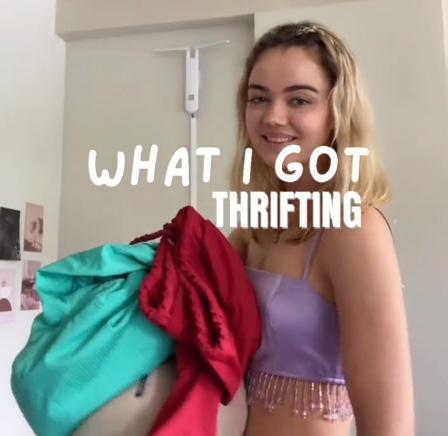
Many influencers have been saying their job is super hard. Ireland said, “At
the end of the day their job should be hard. If you want to be in the limelight and you want to put yourself out there in that way, you’re pretty much making yourself public property.”
“If you are going to slip up somewhere, it could be morally, then you’re going to get called out on it, and good.”
Ultimately, the long-term sustainability of a career in social influencing comes down to the specific content being put out there.
“Generally speaking, an influencer will have a niche and if people identify with that then they should stay within that lane, but what you see is someone might start with something and have
a certain set of values and morals but that compass quickly goes astray when moneys involved,” says Ireland.
It is more sustainable if you do less brand deals. “It's about authenticity and sticking to your brand.”
Morete says, “If you surround yourself with the right people and right brands who align with the same values as you then you can definitely make it a sustainable, full-time career.”

Fast fashion giants such as Boohoo and Pretty Little Thing have recently been slammed for ‘greenwashing’, with their claims to producing sustainable clothing being deemed hypocritical and unethical.
‘Greenwashing’ is a recent and especially cunning marketing scheme where companies attempt to capitalize on the rising demand for eco-friendly products by creating the false impression that their planet-killing companies are actually environmentally safe.
Pretty Little Thing, a mass-production clothing company owned by the Boohoo Group, has recently launched an app ‘reGAIN’, allowing users to
resell their old clothes in a bid to be more sustainable. While some people commend the brand for diverging from their ‘throwaway fashion’ image, others claim that the new app is doing more harm than good.
“The thing about fast fashion clothes is that [they] aren’t built to last… They’re made on a very small budget and sold very cheaply which is why it appeals to a lot of people. Even if these clothes are being resold and their lifespans are stretched out by a few more seasons, they’ll still end up in landfill much faster than your better quality, actually sustainable brands,” says Environmental Advisor and Conservation International Projects Manager, Lesley Iles.
“While studying at uni and being on a pretty limited budget, fast fashion companies were great as they are affordable, trendy and had so many options. Even though I have many pieces that I have had for years, the

quality has definitely decreased in such a short amount of time,” says Grace Wilson, local boutique store ‘KILT’ manager.
Smaller clothing stores such as KILT uphold sustainable and ethical values by producing high-quality clothing in low quantities. Despite this business model being the complete opposite of its mass manufacturing counterparts, there are still many core qualities often implemented in smaller businesses that we should advocate seeing in the fast fashion industry.
KILT has multiple waste reduction business strategies in place including using plant-based, compostable courier bags for all online orders and reusable courier bags made out of old billboard skins to send stock to their boutiques. KILT also sews pricing labels onto their garments rather than using plastic swing tags, further reducing the amount of plastic being sent into landfill.
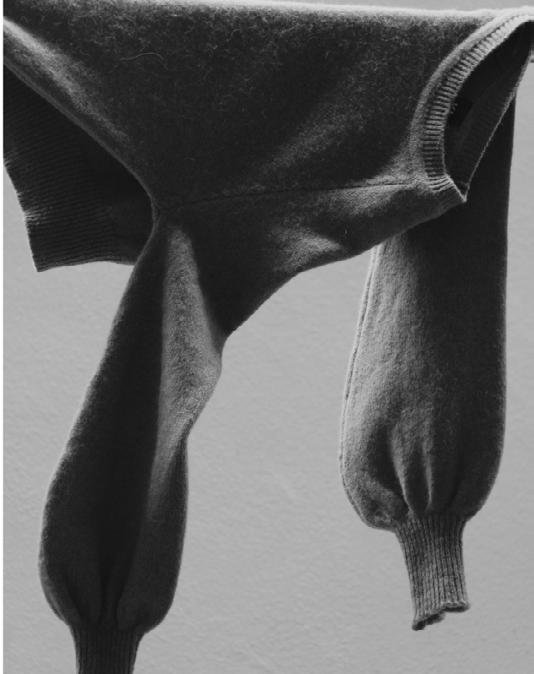
Grace says, “It’s great that bigger companies are trying to make a change and become more eco-friendly, but I think there is still lots of room to grow and better their systems to accommodate for the impact that mass production has on the environment.”
Kourtney Kardashian’s new role as Boohoo’s Sustainability Ambassador has also been marked as another blatant greenwashing attempt. Kourtney often receives attention for her notoriously large carbon footprint, leaving many people confused by her new sustainable image.
The collaboration kicked off with a 45-piece collection, with 41 out of 45 being made from “recycled fibers, traceable cotton and recycled PVC”. So far, this is the only sustainable aspect of the clothing line; nothing has been said about the unethical working conditions that the garments are being made in, nor how much water or carbon emissions it takes to make them, nor whether Boohoo will take any responsibility for the clothes at the end of their life.
“It’s like putting a plaster on a broken bone, it’s not going to do anything to help the environment. It’ll only make the company more money and in turn allow them to continue making their far less sustainable clothes,” says Lesley Iles.
“The most positive aspect of this [celebrity collaboration] is the awareness being raised around sustainable fashion. Even if the company being promoted isn’t sustainable, at least it’s getting people to stop and think about where their clothes are being made, how they’re being made and how their shopping habits are impacting [the] environment.”

Ultimately, and despite the rising of our collective eco-consciousness, our hyper-consumption-based society means that affordability and availability will still often prevail over impending environmental impacts. However, until we can all afford those BCI certified organic cotton, safe and fair labour standards, non-toxic, take-back initiative, limited-run batch, plastic-free
packaged t-shirts, there are still many simple ways we can shop sustainably, look fierce and still have money left in the bank afterwards.
“As I am still on a tighter budget, I have been loving going to secondhand shops because I know I can find good bargains and still be looking after the environment by keeping clothes in a cycle,” says Grace.
“KILT’s pricing may seem high compared to mass-produced clothing companies, however once all the aspects are taken into consideration, you’ll actually find that it’s really affordable.”
“Clothing that is a bit out of my budget I see as an investment. If I trust the brand and know that they’re good quality then I know the pieces will last me years!”

EXPLORE THE WORLD IN 2023 & SAVE an additional $100 with Contiki Student Travel Discount.
Karere
In a time where we are told to do the most we can to combat climate change, an environmental organisation, co-founded by Massey alumni George Miller, is telling us to do less.
Project DO LESS challenges the idea that doing your part for the planet has to be some big lifestyle change, providing people with simple tips to lead a more environmentally friendly lifestyle. These tips range from buying in bulk to using oats to soak up cooking fat instead of pouring it down the drain.
Miller believes that sharing seemingly small tips is the best way to get people engaged in the fight against climate change.
“In the media, we constantly see bleak messages about the state of our environment. When you start hearing that news, it’s hard to not feel helpless. With Project DO LESS, we’re encouraging people to take the battle into their own hands, and make small changes to their lifestyles,” says Miller.
As New Zealanders are becoming more engaged with climate activism, there is always the question of how can I make the change, Alexandra Tylee, Co-Founder of Project DO LESS, says any change is positive.
“Look, we’re not climate scientists, activists or politicians. We’re just
ordinary people who see that the earth is overheating and extreme weather events keep happening, and we feel compelled to do something. We must do less – because we can’t do nothing.”
Project DO LESS encourages users to sign up and pledge a promise to the environment, rather than money. They’re aiming to get 1,000,000 kiwis to make a promise to the planet and themselves to do less.
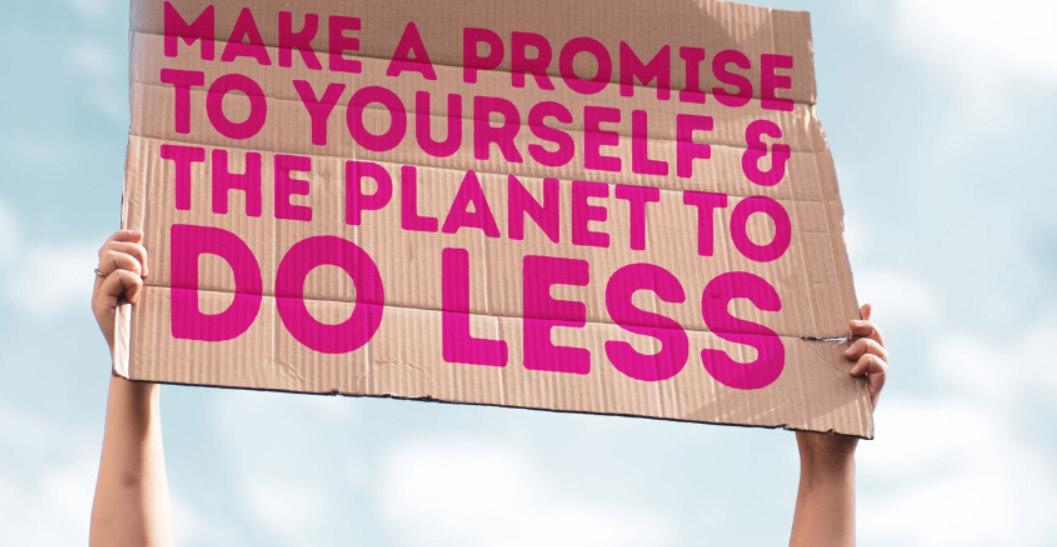
To make a promise to Project DO LESS, visit their social media accounts @projectdoless on Facebook and Instagram, or visit the link below
https://projectdoless.nz/promise/
In protest of low wages, Massey University staff stepped away from their classes from 9:30am to 11:30am last Thursday. This disrupted thousands of students' learning, but affected students say it was a necessary action.
“If missing one class means our lecturers and support staff get the pay they deserve, then I don't see the problem. If this strike makes them better at their job, it means us as students receive a better education, says MAWSA Co-President Lizzo.
The Tertiary Education Union has proposed an 8 per cent pay rise, which they say would keep up with
inflation and revenue increases across the sector. This is the second ever strike held in unison by New Zealand universities, and it comes just weeks out from the end of term and students’ exams.
“It’s not the most convenient time for students, as we’re entering crunch time. So I empathise for those who are really feeling the pressure. Hopefully this is the last protest staff will have to hold before action is taken,” Lizzo continues.
This protest comes after Te Hautū Kahurangi Tertiary Education Union (TEU), along with colleagues from PSA and E Tū, overwhelmingly voted to strike at all eight of the country's universities.

Collective agreement negotiations have been ongoing separately at each of the universities - University of Auckland, AUT, University of
Waikato, Massey University, Victoria University of Wellington, Canterbury University, Lincoln University and University of Otago - since July.
In an online ballot, 87 per cent of the TEU members voted for strike action which aims for employers to come back with a better offer.
An estimated 7,000 academics, researchers and general staff from Auckland, AUT, Canterbury, Lincoln, Massey, Otago, Victoria and Waikato Universities took part in the strike action last week.
Auckland Institute of Technology took the most drastic action, withholding from entering or releasing student marks or course marks into the AUT student management system until an agreement is reached.
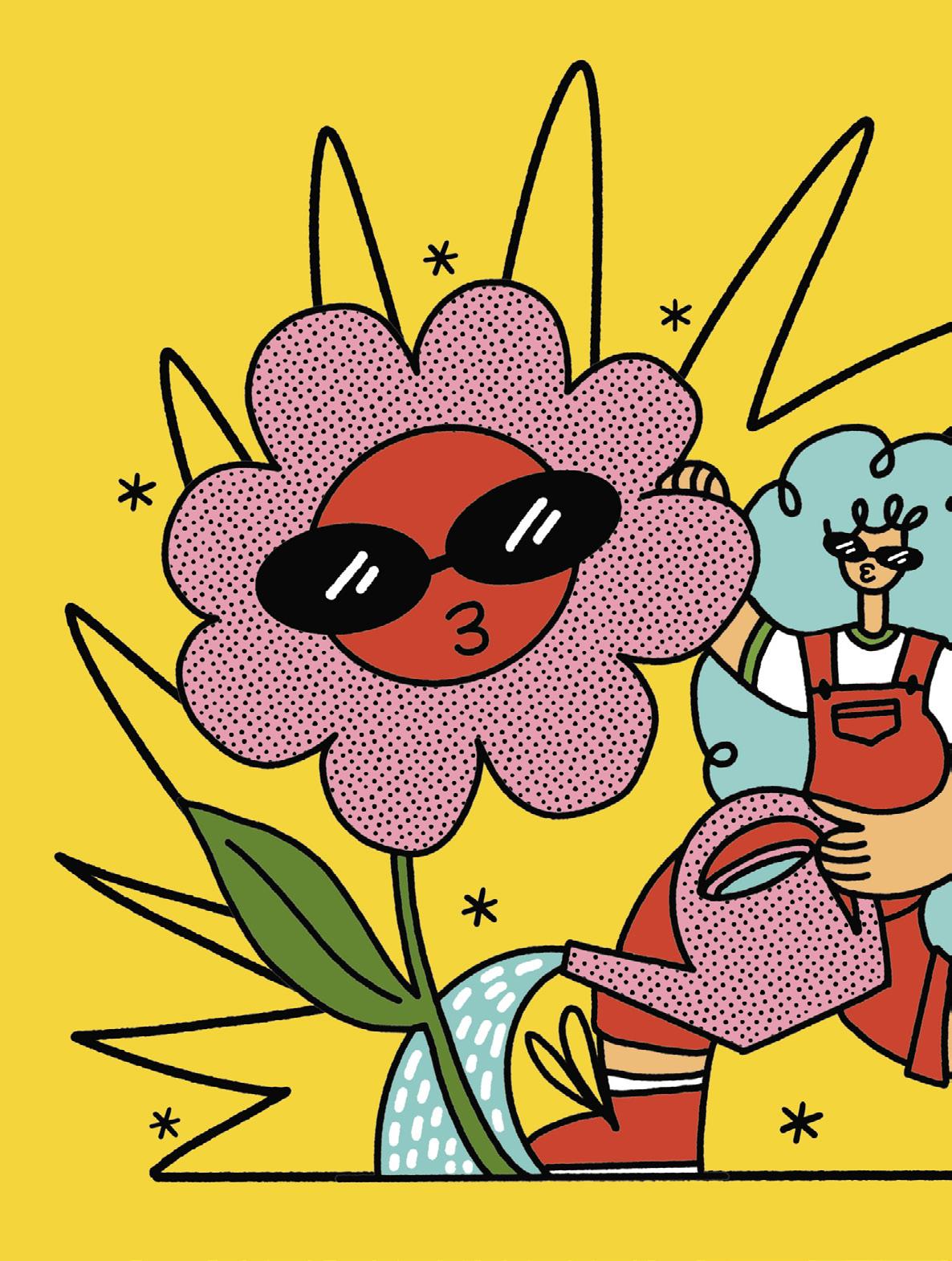
Literally the single best aspect of living at home is the fact I can garden.

When the lockdown blues, the random bouts of depression, or just general overwhelmingness of student life were hitting, I found solace in my little patch of garden. Four small squares and a greenhouse, each housing a variety of different vegetables (when they decide to grow, of course).
I could spend literal hours out there, digging and planting, ripping up the weeds, dumping clippings and trimmings and scraps into the compost bin. When the world started to go funky town, it was great to just go sit in the sun and work on my plants. Not only was the fresh air good for me (as you have probably guessed I don’t get enough) but it was creating an awesome little sustainable place for me to make some good grub as well as find some good grubs.
But I have let it go to shit, as I got a little slack and the university life kinda hit the big time.
“Not your Xbox, drumkit, free food or music collection???”
So, join me, as we explore the ruins of my garden.
Growing plants is just such a small and easy way to create a more sustainable environment to live and thrive in. Additionally, having a small garden can provide huge mental health benefits. Not only does it help to create a more sustainable environment in the long run, but it helps to create a more sustainable living space for you!
Not only is a garden great for your mental health and getting some healthy grub in ya belly, but it’s also perfect to help grow some healthy grubs! Gardens are the perfect place for worms, caterpillars, beetles and whatnot to hang out. They’re basically insect motels. Good for the environment and shit.
I used to think the whole gardening process was so boring and tedious, needlessly mucky and sometimes a bit too smelly for my liking (title of your sex tape.) Now I

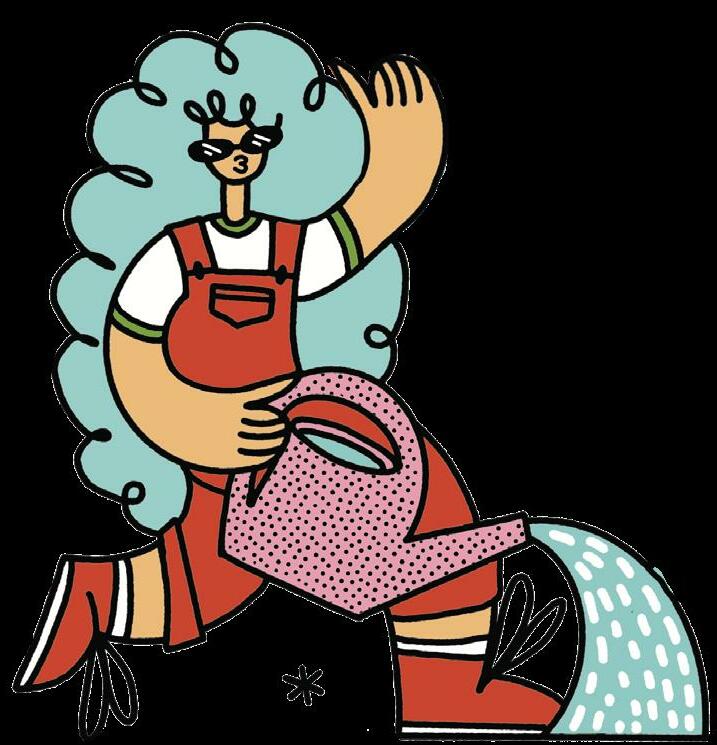
As students it can be hard to find downtime that doesn’t involve drinking copious amounts of booze, sitting in front of a screen, or sleeping. For me, working in the garden became the perfect escape. No tech, no worries about assignments, just planting seeds and watering things. On a nice day, it’s the perfect escape from scary uni shit, becoming a nice little sanctuary safe-space to not think about anything other than how to stop the birds from pecking at your tomatoes. And the amazing thing is, gardens don’t require a ridiculous amount of work. They’re kinda like really chill pets. You gotta water them once a day, unless it’s been raining, and make sure that cats haven’t ripped up any roots or shat in them. And, honestly, that last part barely happens anyway so it might not be something a gardener will



If none of the above has got you wanting to plant a radish then I think this next part will.
You’re invited to a potluck, all your best friends are going and are bringing their signature foods.

You only have a salad. Nothing fancy - lettuce, tomato, cucumber, maybe some red onion if you’re feeling a bit cheeky. You put your food down, everyone scoffs. “A salad? That’s all?” someone remarks, everyone giggles. You push your glasses up your nose (if you don't wear glasses now you do), the lenses shimmering like you're an anime villain. “It’s homegrown,” you utter. Everyone swoons and collapses at your feet, recognising how organic and sustainable your food is, which by extension makes you organic and sustainable. Badabing bada-boom you now are dating the person of your dreams, have 100,000 followers on Insta and are named Kiwi of the Year, all because you chose to make a pretty neat little veggie patch one day.
And that scenario isn’t fantasy at all, I know like ten people who went through that exact chain of events after making a garden.

Sustainable veggies, good space for mental health, and the adoration of your peers all because you decided to make a garden.
And if I haven’t convinced you to give it a go yet then my next words will - vodka is made from potatoes.
And the only thing better than cheap vodka is homegrown, organic and sustainable vodka.
Social movements have a tendency to become coopted by the capitalist agenda, as has been the case with the sustainability movement. This has resulted in the onus of climate change becoming increasingly placed upon the individual consumer.
This process sees our individual actions portrayed as paramount to the planet’s future, while accountability is simultaneously removed from the shoulders of governments and corporations.
Actions such as buying from fast fashion brands and eating dairy are vilified, and individual consumers are expected to feel shameful for unsustainable shopping habits.
In no way am I trying to assert that shopping slow fashion or subscribing to a vegan diet is a negative life choice. Rather, that this judgemental perception towards those engaging in unsustainable consumer choices does not do much to further the movement.
If anything, this paralyses the ability of the movement to contribute to change and progression. We remain stagnant in an everlasting cycle of perpetuating the need for individual choice, while closing our eyes to the real changemakers in our midst.
The large proportion of impacts on our climate are caused by corporations and unsustainable government policy. Placing too much emphasis on the individual consumer alleviates the responsibility of the major contributors to the denigration of our planet.
For individuals supporting families, or on low incomes, shopping sustainably can often prove difficult. The majority of unsustainable foods are cheaper and more convenient than sustainable food options. For many who are working within low-paying jobs, or do not have access to high quality education, this creates an issue of accessibility, in which some families do not have the same capabilities and opportunities to source sustainable food options.
In this way, many individuals and families do not have a choice in the same sense that wealthier individuals and families may have. In terms of food choices, cooking vegan may be cheaper if you know where to source fresh vegetables, but it requires time and knowledge concerning recipes and nutrition. Low income families who may have many mouths to feed do not have the freedom of time to learn both vegan recipes or nutritional knowledge regarding a plantbased diet.
As noted in a Guardian article, individual sacrifice alone will not bring us to zero emissions. This is a goal that can only be achieved by real structural change that has to come from government action.
In this essence, we should instead be placing the onus on the Government and global leaders that have the ability to enact meaningful policy changes, and on the corporations and companies that are inflicting the most damage on our planet.
Last month, we saw thousands of students demand this of the Government in the climate change protests across Aotearoa.
Spear-headed by the student movement Fridays for Future Tāmaki Makaurau, students gathered outside Parliament in Pōneke, at Cathedral Square in Ōtautahi, in central Tāmaki Makaurau and Ngāmotu.
This call shows the demands of the younger generation who are unsatisfied with the planet their predecessors are leaving behind them.
They rallied calls for more climate action from our government, including more sustainable agriculture practices, upgrading cycleways and walkways and free public transport.
These young protestors are exhibiting the type of action that can best support the work of the climate crisis. Putting direct pressure on the Government, such as they have done, tells leaders exactly what the country desires of them, and holds those in the Beehive to account.
Alongside protest and collective action, one of the most impactful individual actions that any of us can do is to vote. To vote for those in government who represent and fight for policies and legislation that considers the environment. For those who seek to genuinely reverse the effects of climate change.
Voting provides us with the opportunity to have a say in the type of government that gains power. We have the ability to vote for those we feel are best suited to political power, and who will best implement genuine and meaningful climate action.
Placing responsibility on those in power also opens a conversation regarding the large corporations who have been allowed to destroy our planet without recourse.
Recently, we saw Yvon Chouinard, owner of Patagonia, give away the company to a charitable trust. It is stated, ‘That under a new ownership structure, any profit not reinvested in running the business will go to fighting climate change.’
It is estimated this could lead to around US$100 billion per year going towards climate change efforts, depending on the health of the company.
Chouinard stated, "Instead of extracting value from nature and transforming it into wealth, we are using the wealth Patagonia creates to protect the source."
This represents a transformative shift in the ideological thinking of companies and CEOs, and hints towards a precedent this could create for other companies.
With more pressure on not only the Government, but the corporate elite, change is possible, as shown by the actions of Chouinard. With so much wealth concentrated in so few hands, it is essential that wealth be used in ways that can further the movement of climate change – otherwise we will all suffer.
This is possible, not through the individual actions of consumers, but through the actions and commitments of governments and corporations.
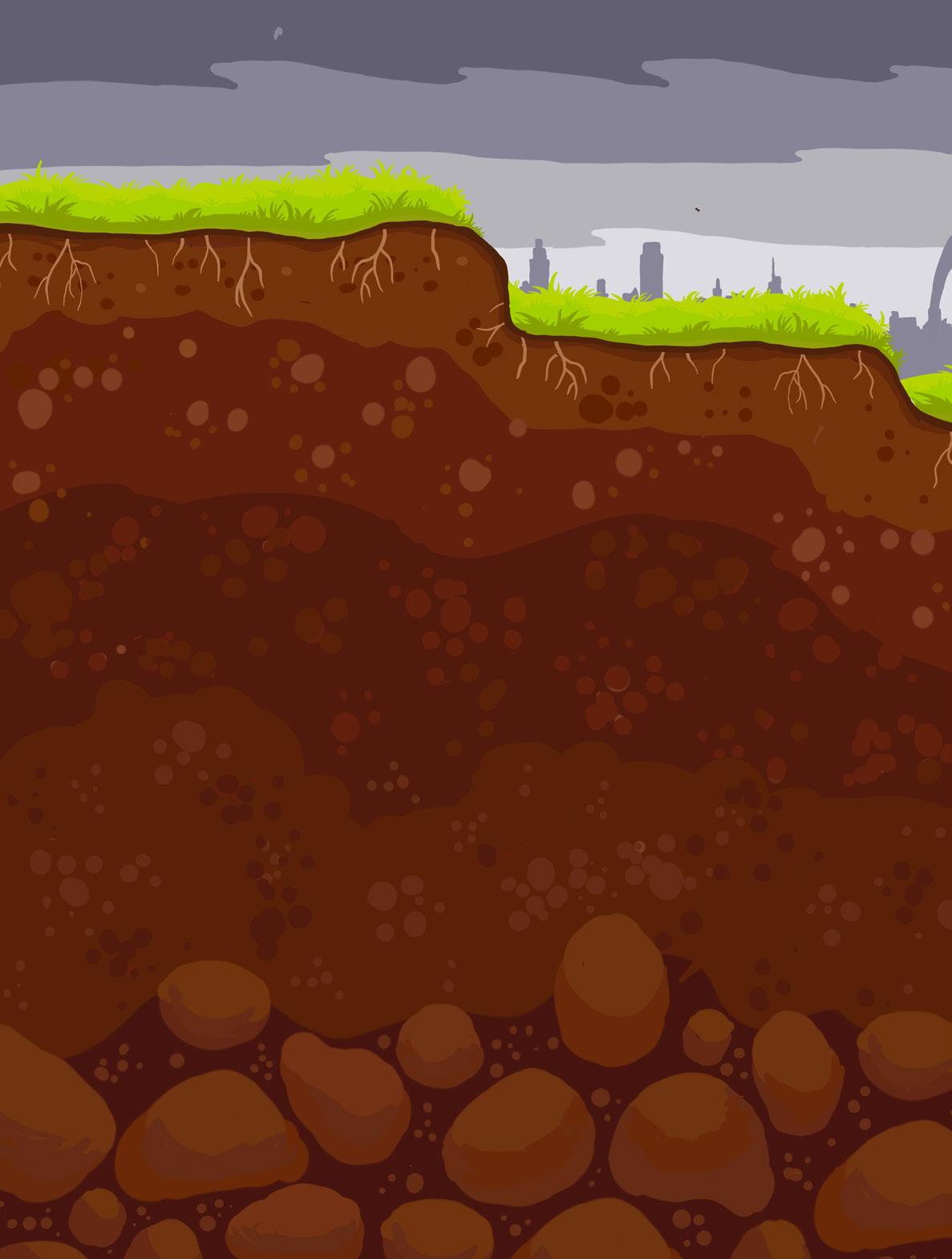
Degrowth why staying put helps us move forward
For decades our economy has grown at an impressive rate, and it's meant a whole heap of amazing accomplishments for mankind. But one of the consequences has been everyone's fave – climate change. This is the dilemma our generation has to face. How can we maintain a growth economy and save the planet?
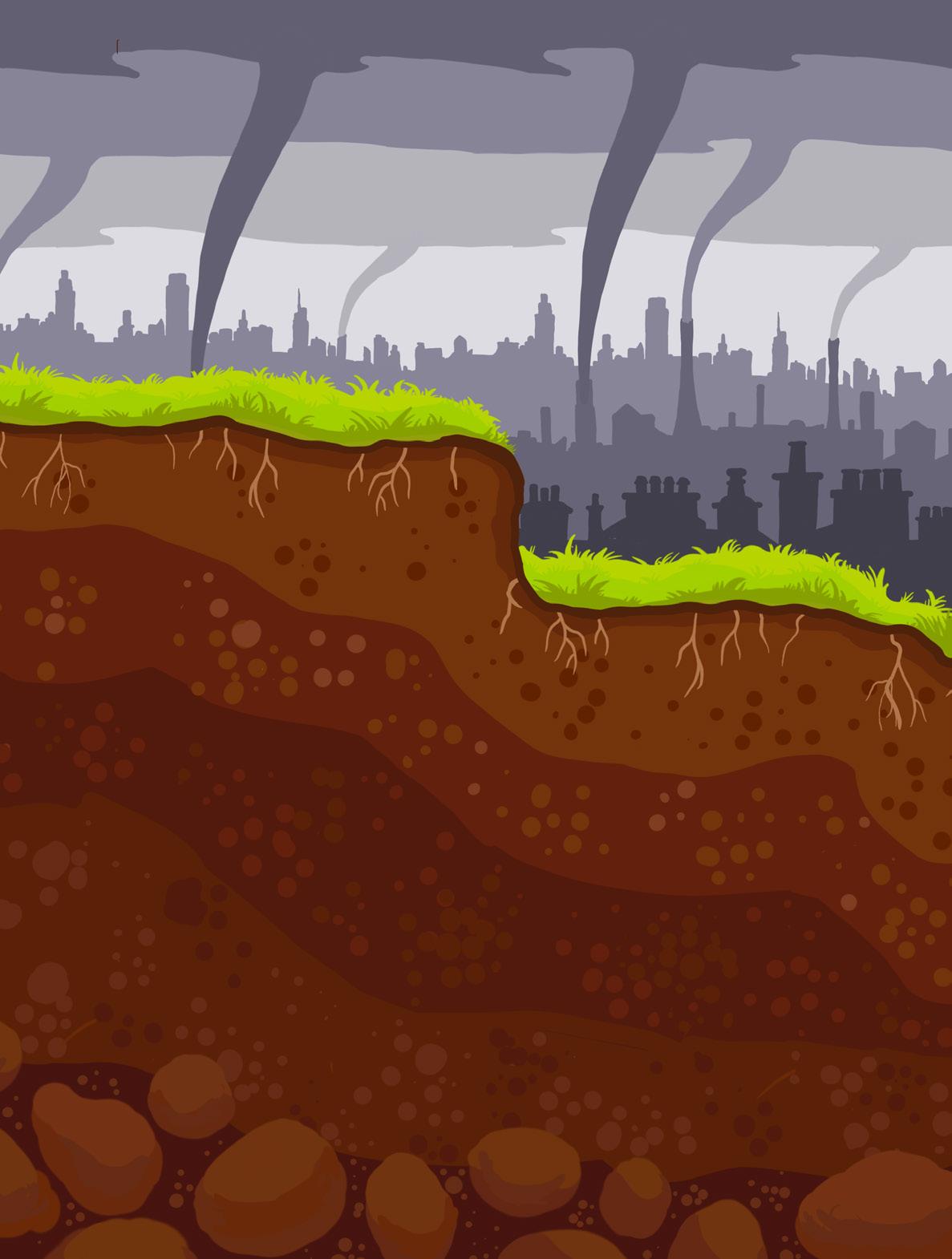
The most popular theory is incredibly complex: Mankind will figure something out because we’re smart. That’s it. Not much more too it. So far, this hasn’t happened.
But there’s an alternative theory which has been rising in popularity in leftist communities, which is that we can’t maintain a growth economy without destroying our planet.
Doom, gloom and complicated, I know. Let me backtrack a bit.
What is a growth economy? Well, it’s pretty much what it sounds like. It is an economy which aims to consistently grow. The more money firms make, the more they can focus on making better products, creating new research, new ideas and inventions and creating new jobs.
Economic growth has led to better living conditions for populations across the globe and an increased lifespan through medicine. I mean without a growth economy you likely wouldn’t have half the possessions you have today.
This is great, and yeah generally everyone benefits from a growth economy. But only to a point.
We’ve been long taught to appreciate the benefits of this growth economy and, like I mentioned, there is good reason for this. But more often than not, we appreciate the benefits of the end result of this economy and not the processes that yes, get that iPhone into your hands, but also release emissions into the air, destroy natural wonders and hire employees for ridiculously low wages in developing countries.
With growth comes the need to find resources, competition between firms and the exploitation of consumers and workers. This looks like trade wars, the erasing of nature, sweatshops and exacerbated living costs for those on the losing end of the stick. Not so good.
So, why should we choose to give up the benefits of the economy in the name of the planet? Does degrowth mean living like hunter-gatherers, or an inability to climb the career ladder, or to live like it's the 50s and hold on to your possessions until they’re falling apart?
Not quite.
Kate Raworth is an economist working for Oxford University and the Amsterdam University of Applied Sciences, who supports the idea of degrowth.
In her TED Talk titled ‘A healthy economy should thrive, not grow’ she explains, “Today we have economies that need to grow, whether or not they make us thrive. And what we need especially in the richest countries are economies that make us thrive, whether or not they grow.”
Through this talk, Raworth takes us through a light history of economics, explaining how we ended up with the growth mindset and global economy we have today, and really, initially this way of thinking was hugely beneficial.
“It was invented in the 1930s but it very soon became the overriding goal of policy making, so much so that even today in the richest of countries governments think that the solution to their problems is through growth,” explains Raworth.
She refers to a book written by W. W. Rostow, an economist and policy advisor for Kennedy. He outlines five stages of economic growth using a plane metaphor, which were particularly relevant in the 60s.
1. Output of products is “limited by its technology, institutions and mindset”.
2. Work becomes more structured; banks are forming and there’s an uptake in a ‘growth mindset’.
3. Growth becomes a normal economic condition and built into institutions (like reserve banks).
4. “Drive to maturity where you can have any industry you want no matter your natural resource base.”
5. “Age of high mass consumptions, people can buy whatever they want."
After reading these, Raworth comments, “This plane is like no other, because it can never be allowed to land.”
It makes sense, you read these stages and you think, yeah stage five is where it’s at – it’s where we’re at. But in the 60s we had no way of anticipating or knowing how negative the impacts of mass consumption could be. Today we do. Our planet is literally on a pathway to destruction. We are addicted to growth, and degrowth economists are aware that this is one of the biggest barriers to fixing this world.
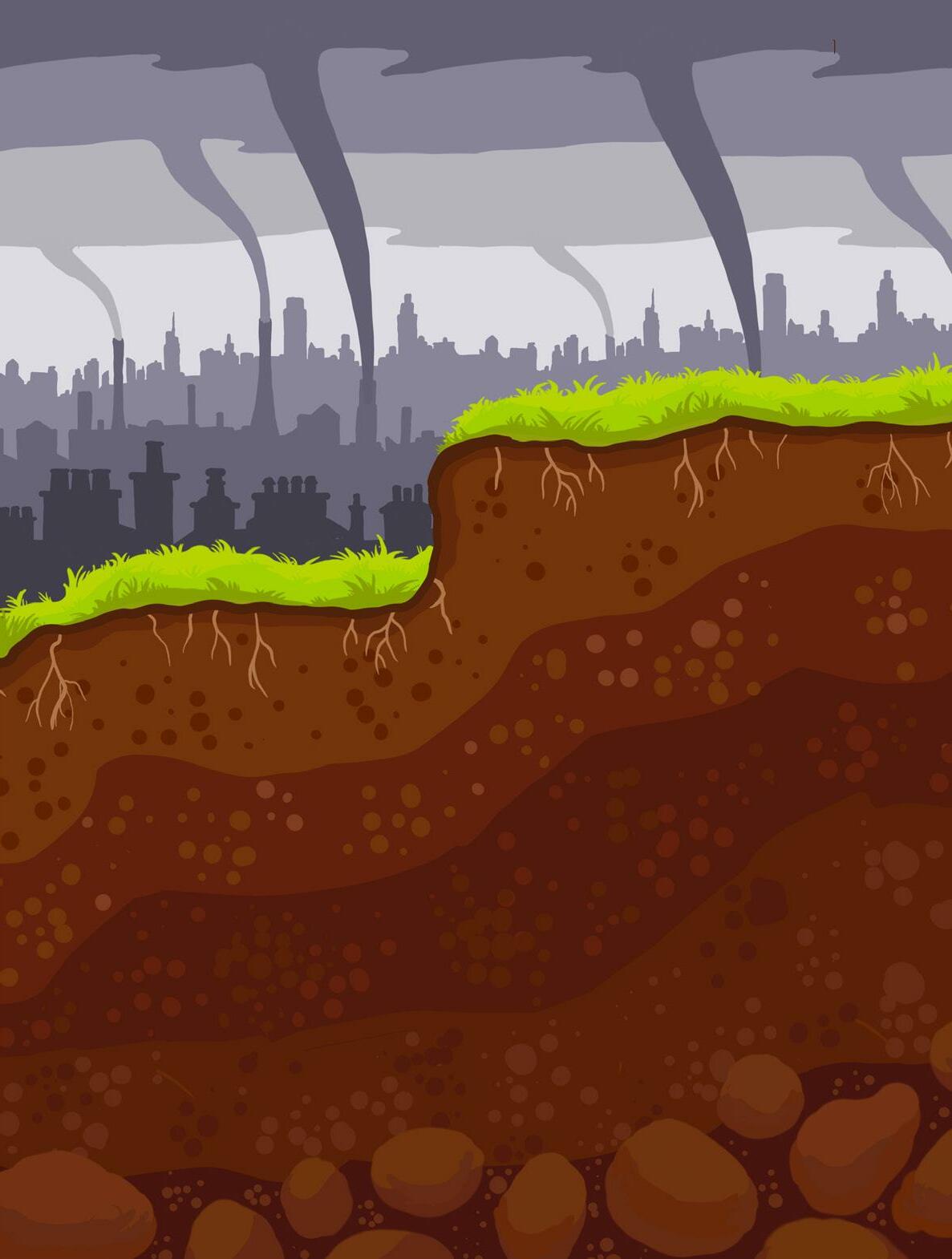
We’re not just addicted to growth in the sense of “we wanna buy more things and earn more money”. It’s far deeper than that. Our economy is built on the idea of growth.
Businesses need the economy the grow, as a stable profit is no longer enough to be necessarily seen as a successful business but instead it’s growing profits (such as all our damn supermarkets earning recordbreaking profits when no one can afford the food they used to since the beginnings of Covid). Banks need the economy to grow to earn interest on loans and pay interest to savings accounts, and politicians need to keep the economy growing to not only satisfy the needs of individuals and businesses (they won’t get votes if they aren’t prioritizing a growing economy to some extent) but to raise tax revenue; the higher GDP is worth, the more tax is paid without the need to lift tax brackets.
This growth, as Raworth highlights, isn’t felt by the lower classes as it could be, but by the top one per cent, who are already richer than lower, middle and even a lot of upper classes can imagine. This top one per cent are the ones who benefit the most from that growth and are the ones least threatened by inflation or recession.
Now, getting into degrowth, it can seem scary. If you’re already financially struggling, how the fuck could stopping economic growth, potentially even decreasing the economy help your situation? Well, again, there is enough money in the world, it’s just being hoarded by billionaires and mass corporations who prioritize growth for shareholders over a business which satisfies the needs of consumers, employees, suppliers/ manufacturers AND shareholders.
Degrowth wouldn’t mean simply throwing ourselves into a recession and calling it a day. It wouldn’t mean throwing out GDP and replacing it with flat out chaos. Degrowth economists propose that we implement new measures of how successful a country is doing, focused on wellbeing above the economy. This would look like social housing, guaranteed education and healthcare, and taxing the richest by far more than we currently do. While GDP just focuses on essentially just production and consumption, a new system could measure a whole range of factors that affect people in their everyday lives.
Normal growth is proposed to increase emissions by 77 per cent, while no growth would decrease them by 22 per cent, and a degrowth model could decrease emissions down by 78 per cent. This is a promising solution, but it will require work to ensure we aren’t just throwing ourselves into a recession.
While degrowth might seem crazy, it really isn’t. In fact, up until the past 200 years, humans have never seen a consistently growing economy. Pretty much everywhere in the world has experienced periods of degrowth and it didn’t always end in war and conquest like plenty of history makes it seem. A lot of the time, these periods were simply periods of stability – but again, not always.
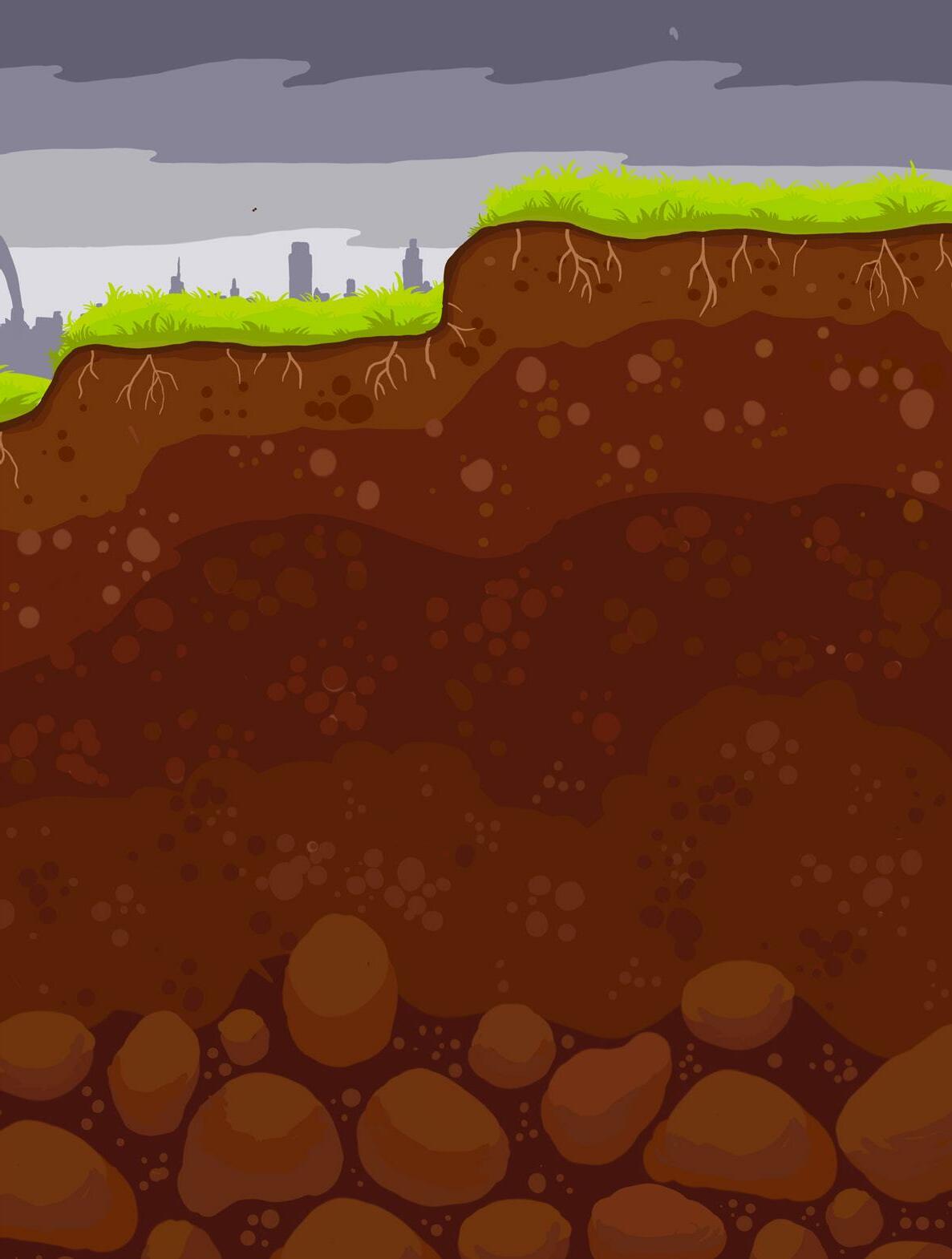
Imagine, at the beginning of the pandemic, we all locked down for two weeks. We could have, through a low couple of weeks, stomped out the virus before it was too late and avoided these years of instability. The longer we wait for the big climate change solution, the worse the economy will be in the long run. Instead of banking on a cure or thinking ‘it won’t affect me’ like we did in our pre-lockdown era, we should really be stopping the curve of emissions as soon as we can.
Listen to the scientists, kids.
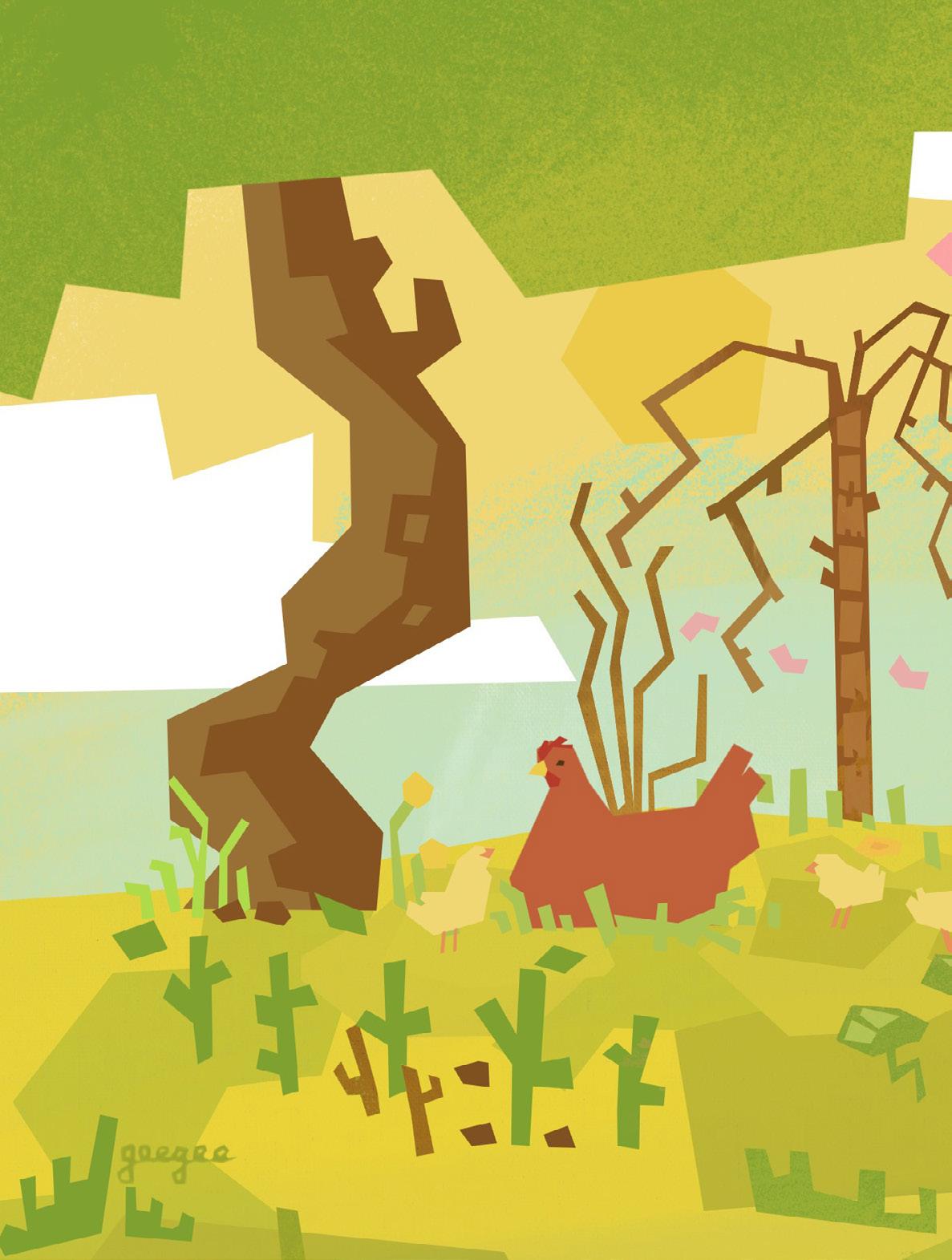
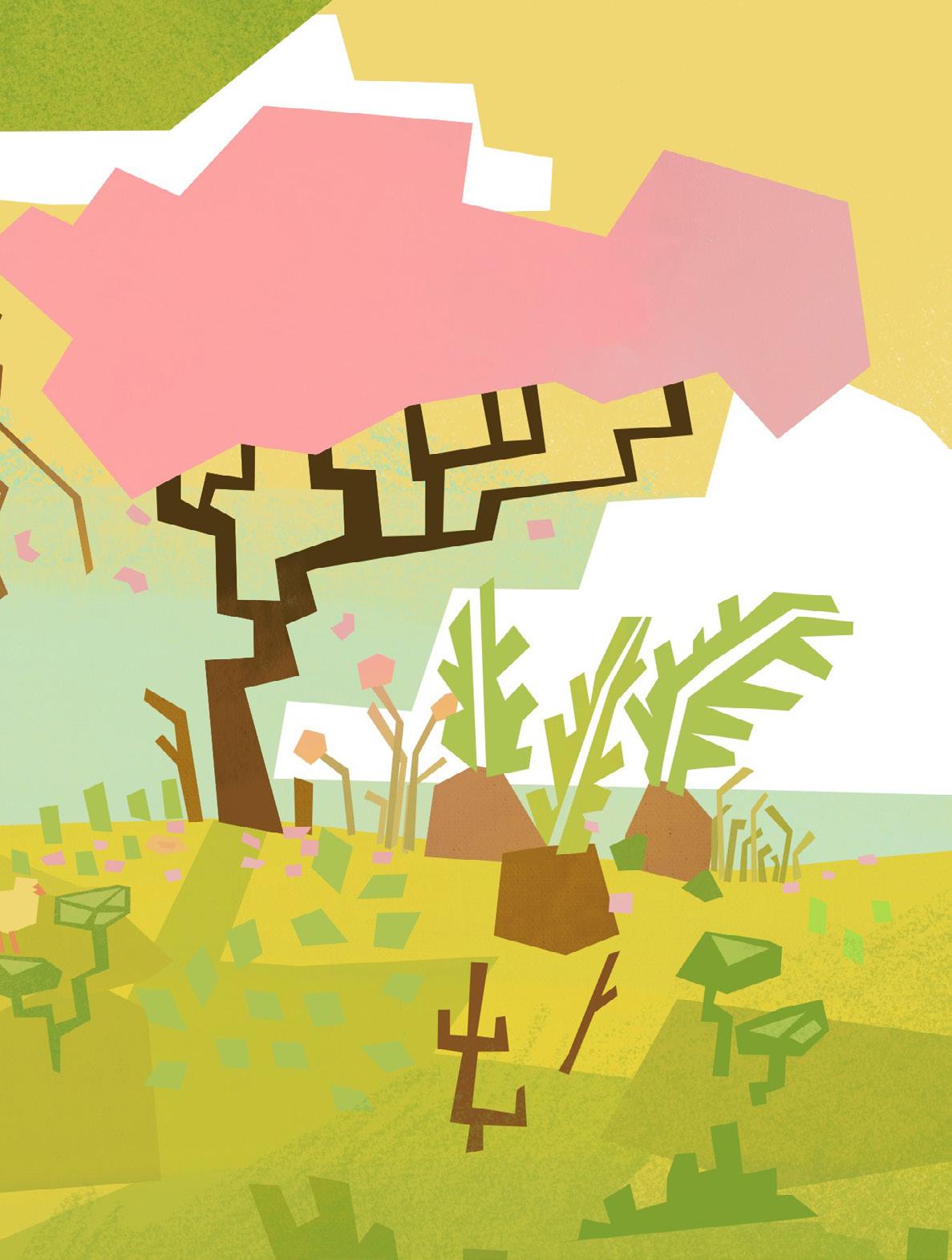
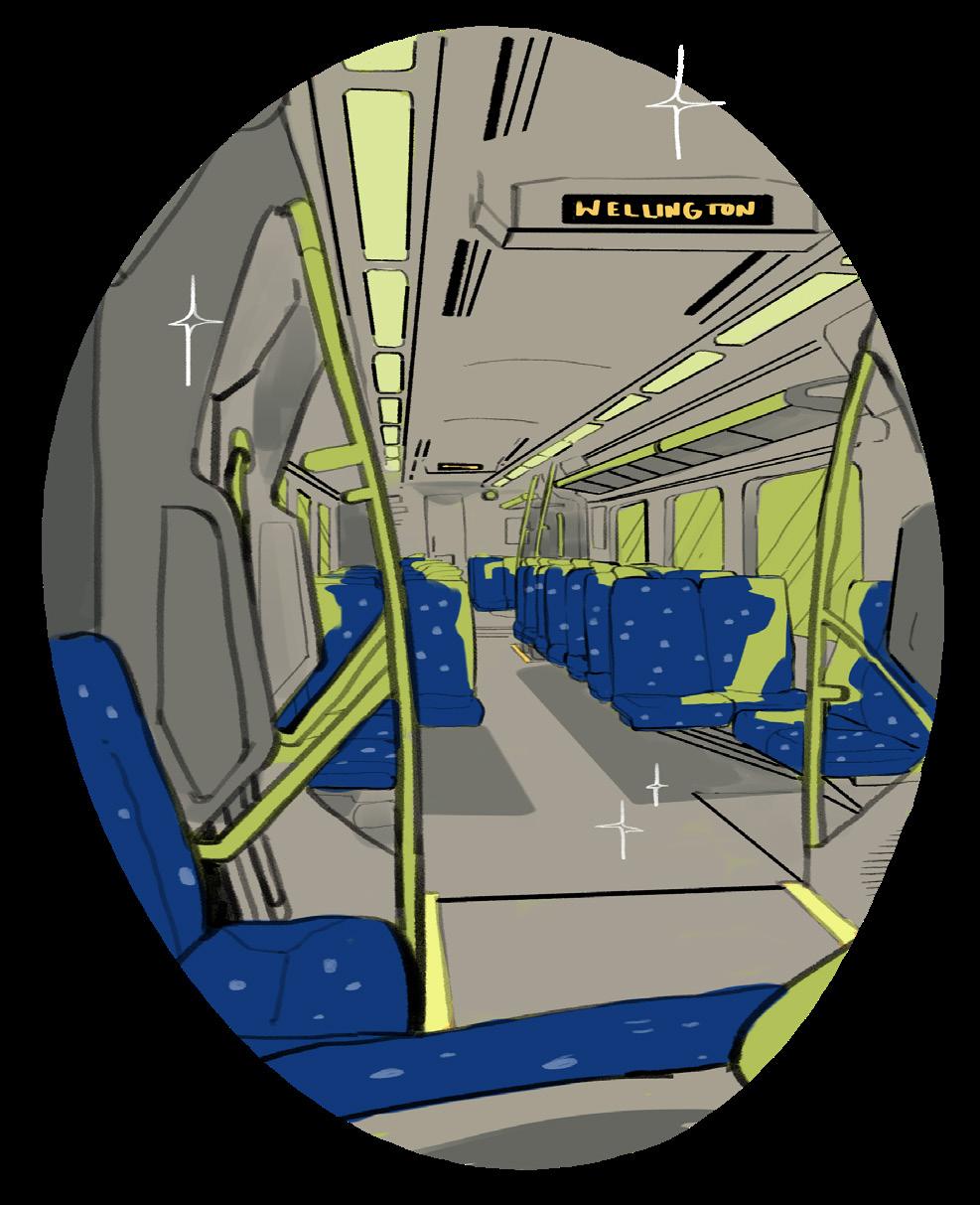 Elena McIntyre-Reet (she/her) Illustrated by Lisa Dao @pyonnyom
Elena McIntyre-Reet (she/her) Illustrated by Lisa Dao @pyonnyom
Public transport can be unreliable and uncomfortable. There is nothing worse than perching on the edge of a bus seat while someone man-spreads next to you on your way to uni or work. Using our cars wherever we go is not a sustainable option, for our wallets or the planet. A lot of cities in New Zealand are still working on creating decent public transport infrastructure, but until then it’s important to consider all our options for getting from A to B.
Catching the bus or driving to your destination is the most popular method of transportation. It’s safe, it’s conventional, it’s (dare I say) boring. Catching the bus or sitting in traffic in the morning feels a lot like being a part of your own funeral procession. You know you’re not going to like where you’re going, so why make the journey miserable too? I suppose the advantages of being warm and having a bit of privacy in a car offer some consolation for the destruction of our planet but overall, not an ideal, future-proof method of transport.
If you live in the inner city and don’t need to go on any highways or dirt tracks to get where you’re going, the electric scooter offers itself as a noble steed. Depending on how far you have to travel, they can generally be pretty affordable – cheaper than filling up a car or catching an Uber. The only problem presented by the e-scooter option is that there is no way to make riding one look sexy. The number of people I see rocketing down the streets of Wellington, wind in their hair, just looking like absolute menaces is astounding. I’m not a fan of the word ‘ick’, but if you’re a 10 while not riding an e-scooter you immediately drop to a 4 while riding one. They’re also quite dangerous. You’re obviously not meant to drive those bad boys while drunk, but every Saturday night the streets fill with people off their tits using an e-scooter to get home. There’s been actual journalism pieces done on e-scooter injuries which I’m sure you can find with a quick Google. Overall, not a terrible option if you’re a sober and confident person –and definitely better for the planet than driving your car.
Stay with me here because I have a feeling I’m going to lose you: Heelys. A sensation that has swept the globe multiple times. A fucking awesome shoe? Yes. Also incredibly practical? Yes. Granted, Heelys as a transportation solution might only be suitable for those people who live walking distance from their required destination, but I don’t think anyone has considered the positive environmental impacts of a mass-produced, cheaply made, low-shelf-life shoe. Whatever the opposite of an ick is applies to people who Heely down the street. Obviously, I’ve never actually seen anyone do this, but I’m sure after this article hits the stands, the streets will be swarming with legends Heelying their way around New Zealand’s major cities. The practicality of this option is limited, but it makes up for it in infinite amounts of drip and sauce.
Cycling is obviously a legitimate alternative to public transport or driving, but it’s a well-known fact that without suitable dedicated cycle lanes, you’d be taking your life into your hands whenever you just want to go to uni. Most drivers don’t have the patience to allow a safe place to pass a cyclist. Realistically, cycling is a reliable way to get to and from places. Most universities or workplaces will have bike racks so you can head straight home from study or work. The weather plays an important role in the success of becoming a commuting cyclist. Nobody wants to leave a full day of lectures to head to their bike and cycle home in heavy rain.
Another weather dependent option is skateboarding. There’s a lot of admin to make this option work. For example, you need to know how to skateboard. To get to the stage where you can confidently ride a skateboard for transport purposes will take a bit of time and probably a lot of bruises. It’ll get you to the place you want to go, but you’ll get a lot of scrapes along the way. The benefit of this option is that you’ll look like a fucking legend. The downfall is the obvious risk of injury and the set-up costs and potential threats to your pride from falling off in public. Speed will be on your side though, and going downhill will be scary but worth it for the time you’ll save. You’ll probably also get super buff in just one leg from all the pushing on your skateboard.
This one is a bit out the gate, but if you’re living in Palmy North or Fielding or some shit, then it could work for you. I’m not joking when I say you should all travel to uni by horseback. Can you imagine how fucking cool you’d look just rocking up to a 9am on a huge stallion. I’m not sure how it works up in P Norty but I imagine they have horse stables next to the bike racks or something for you to make use of. Horses are obviously an expensive thing to pay for, but I think it would be worth it for the sure badassery of galloping to work in front of all the traffic. The clean-up job would be messy because we all know horse shit is completely massive.
We all have to start thinking about the way we move through the world, and the impact it will have on the planet. Until there’s proper infrastructure in place to support a carless world, we have to think of some alternatives – so why can’t it be a pair of Heelys?
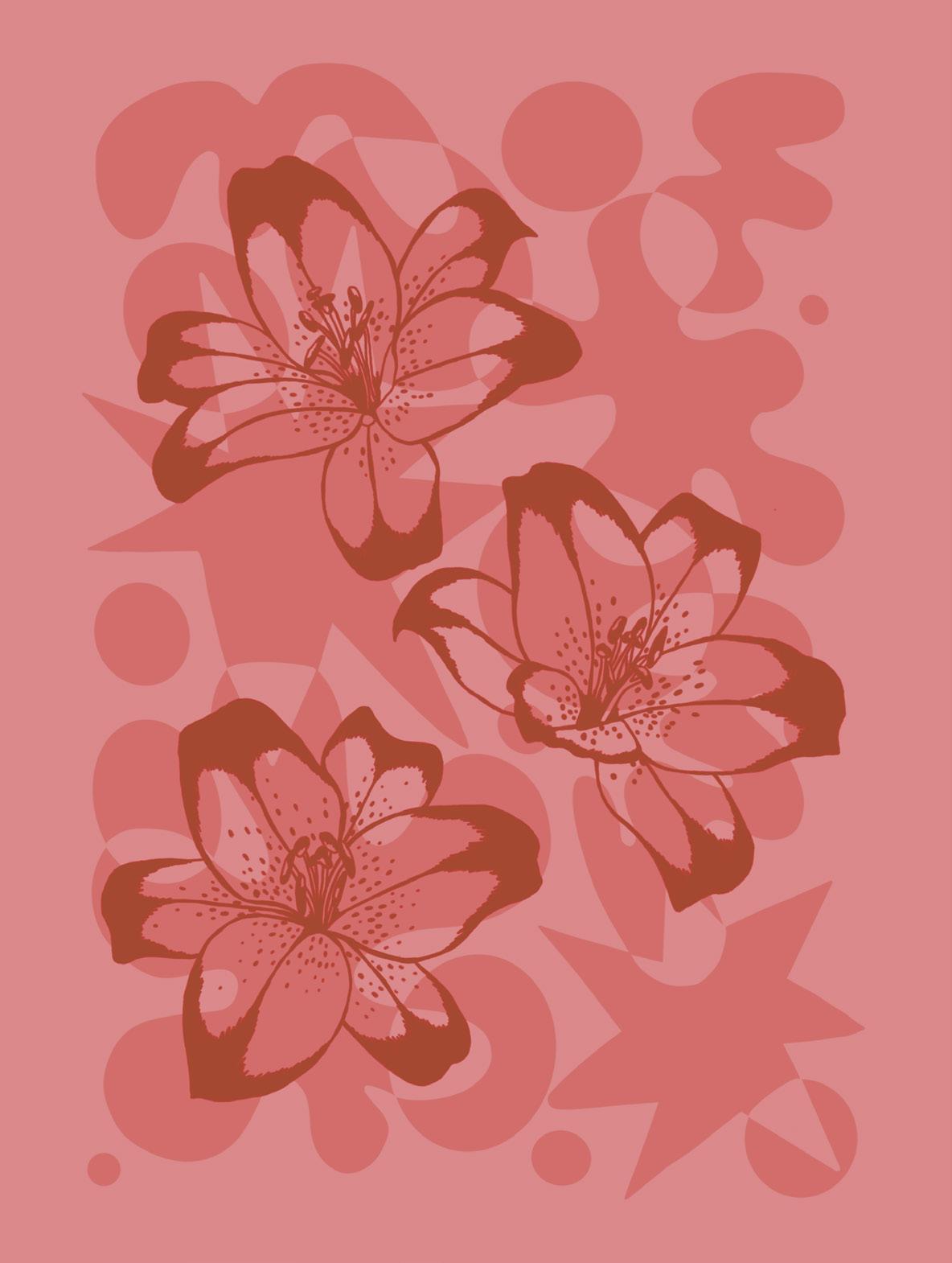



Nearly a millennium ago, Polynesian voyagers used their rich knowledge of stars, weather, currents, plants and wildlife to navigate across the oceans to Aotearoa. As they established a society and settled into their new home, Māori developed an intimate place-based system of knowledge or mātauranga.
But, as has been repeated the world over, colonisation in Aotearoa meant that our indigenous knowledge, mātauranga Māori, was undermined and diminished in place of the British ways of doing things. Māori were dislocated from our whenua and our language was actively repressed in schools and institutions. In the process, our rich bodies of knowledge were left fractured.
Similarly, in Aotearoa, tīkanga traditional customs and protocols, drawn from an interconnectedness with nature, have been passed down the generations for hundreds of years. Today, conservationists and scientists are examining these concepts and engaging with Māori to better understand how mātauranga Māori can help us adapt to a changing climate.
Dr April Bennett, a Māori Environmental and Resource Planning lecturer at Massey University, believes mātauranga and its holistic approach is important to recognise when discussing changing climates.
“Mātauranga Māori and whakāaro from te aō Māori can help us to come up with responses to climate change due to its holistic nature. Climate change is a complex issue, there isn’t one simple solution to the range of problems at hand. By taking a holistic view, we can draw on the values of te aō Māori that tell us to move towards a collective good. That collective good is preserving the land we live on.”
Climate change is mostly a result of poor practices, including the use of fossil fuels and nitrogen-rich fertilisers, combined with the principle of capitalism to generate profit. This has seen huge land-use change.
Agriculture, horticulture, and forestry are part of New Zealand’s modern history and will have a role to play moving forward. However, many of these areas leave a large ecological footprint.
“Māori have a deep connection to the natural world and understand that balance is fundamental. The way in which Māori understand the connections between their land, waterways, and important species provides a unique perspective,” Dr Bennett continues.
The Māori worldview is holistic and recognises climate has an impact on all the important aspects of life. Climate tohu indicators serve as guides for planting, fishing, harvesting, and travelling.

Mātauranga Māori recognises that, to protect taonga and the wellbeing of nature, it is vital to practice tīkanga. These practices have been generated through centuries of accumulated knowledge and observations of natural systems and human interactions.


One expression of mātauranga Māori that can help us understand how tīkanga can be integrated into climate conversations is kaitiakitanga. This is guardianship and protection of our environment. Kaitiakitanga echoes the principle of intergenerational sustainability, and the practices, drawn from indigenous knowledge, to achieve it.
These tīkanga were passed down through generations of whānau, providing guides on how we might behave as those privileged to be users of those fruits of Papatūānuku.
As bearers of this land we have reaped the rewards our environment has gifted us. With this reward we are given responsibilities to make sure resources are used in a sustainable or regenerative way. If these responsibilities weren’t upheld, our privileges were revoked.
Every species on the planet is impacted by climate change, and we must respond. I ask April what a Māori solution to climate change looks like.
“In these real challenges, it’s going to take a collective effort. Drawing from all the knowledge we have available to us makes more sense than drawing from a very narrow field of knowledge,” she says.
“It’s not that science doesn’t have a role to play. It has an enormous role, but so do the other ways of knowing that haven’t been considered.”
“Western science needs to begin to look at the concepts that Māori use for climate change decisions and how they fit into the climate change adaptation narrative. I am optimistic and believe that we can dig ourselves out of the hole we have created.”
More recently, there's been a renaissance in these spaces as part of wider efforts to honour the promises made by Te Tiriti o Waitangi. Māori academics joined community-based efforts to elevate mātauranga within the sciences. Those efforts have been met with official policy like Vision Mātauranga, put in place in 2005 to encourage the integration of science and matauranga in research and funding focuses. Kaupapa Māori centre for research excellence, Ngā Pae o te Māramatanga, was launched in 2002 as a home to develop mātauranga Māori.
Unfortunately, this progress hasn’t happened without challenge. In July last year, a group of University of Auckland academics penned a letter to The Listener magazine titled, “In defence of science.” In the letter, the seven academics critiqued attempts to elevate the teaching of mātauranga in the New Zealand school curriculum. In it, they described mātauranga as falling “far short of what we can define as science”.
“Climate change tends to be dominated by the sciences, for many years there has been the view that mātauranga Māori is only mythologically based, meaning it hasn’t been taken seriously in the scientific field. Formally and informally, mātauranga has been not only disregarded, but flat out rejected,” says Dr. Bennett.


For students, it is easy to look at mātauranga Māori as a concept and not as a tangible knowledge source we can act with. That way of thinking will not progress our connection with the land, nor will it improve our connection with tīkanga Māori.

Although this attack on mātauranga Māori was a kick in the guts, the pushback against this message from Māori and Pākeha lecturers across the motū has brought our ancient knowledge back into the spotlight.
“Mātauranga Māori can be utilised by everyone.
Aim to do the little things as students, and when you’ve graduated, look to make a bigger change for our precious whenua.”

As part of fundraising efforts for the ‘Save the Kiwi’ campaign, MUSA facilitated the planting of over 100 native trees on the Palmerston North campus. This campaign aims to save the declining kiwi from extinction through preserving native wildlife and extending knowledge of how to protect the kiwi.
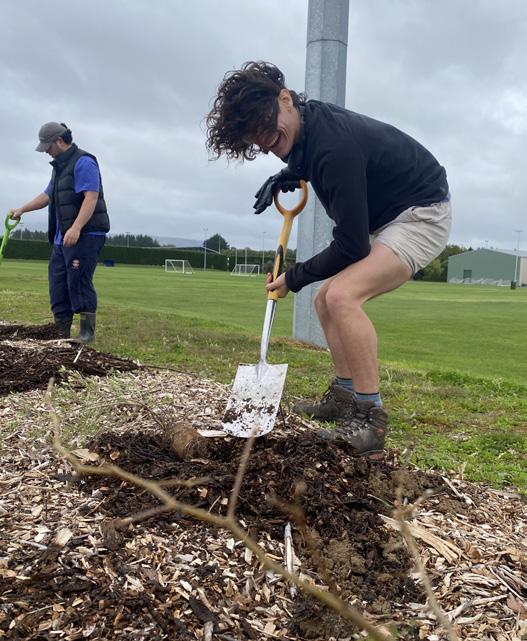
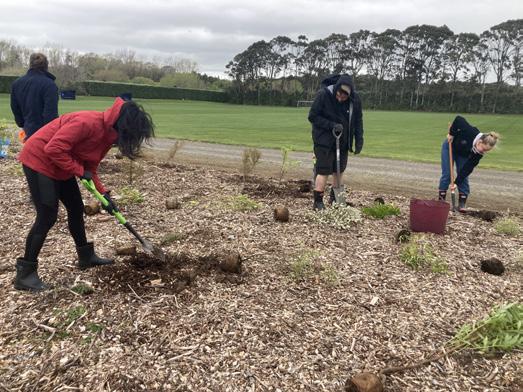
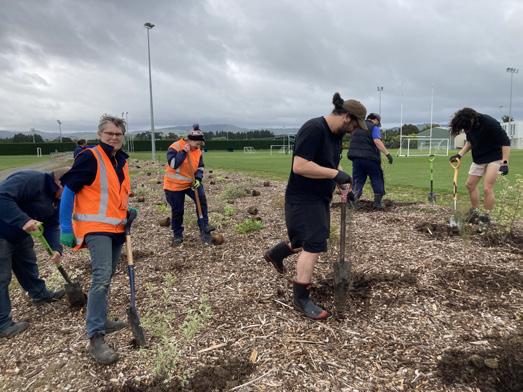
This kaupapa also aimed to raise awareness for native wildlife preservation and promote mental wellbeing through connection with nature.
Above are some pics of the MUSA team at work


A boy at school once made a backhanded comment to my face about my mustard-coloured knitted jumper one day at school . While it was pretty harmless, I was left feeling like all I could and should wear was skinny jeans and crop tops because that’s simply what the girls all wore. But at uni, cardigans and jumpers are, dare I say it, cool? With newfound access to a student loan, I definitely over-consumed from fast fashion brands as I revamped my wardrobe, going from being a teenager to a student who didn’t feel like neon crop tops really fit her vibe anymore.
Fast fashion, cheaply and rapidly produced clothing at low prices to keep up with current trends, is a problem we are all thoroughly aware of through social media, especially TikTok, as sustainability makes its way through the algorithm. Last year, one popular studytuber posted a TikTok showing her new top from a sustainable company, stating that “fast fashion sucks” and encouraging us to thrift or invest in good quality pieces that will last. What she didn’t share was that the top in question cost $250, to account for the more expensive long-lasting materials and ethical production. As one TikTok commenter pointed out, this equates to around 20 hours of work at minimum wage for 18–20-year-olds. At the end of the day, fast fashion is widely available at low prices. Sustainable clothing is less accessible, and I don’t think it is up to others to police our habits, because sustainable fashion is a privilege, a very worthwhile one, but still a privilege to access and promote.
However, with more knowledge of the problems surrounding fast fashion, I have made a concerted effort to reign in my consumption. Do I still buy fast fashion? Yes. Because if I need a basic top, I will buy one for ten dollars instead of the prices charged by ethical companies, which range from $50 to $70 per top. I, and likely most students, can’t afford those prices regularly. But I still feel guilty if somebody asks where something is from, and I have to admit it’s an unethical H&M piece.
We all deserve to look and feel nice in our clothes and more blame needs to be put onto the companies producing the clothes rather than blaming consumers, many of whom do not have the luxury of shopping sustainably elsewhere. While sustainable advocates may not like it, fast fashion allows more people to get involved in fashion and keep up with the trends when the price tags of designer brands like Balenciaga are out of reach. And I don’t think it is up to environmental advocates to make people feel guilty for wanting to enjoy clothes on a budget that is accessible to them, however worthy the cause may be. What environmental activists should be doing is instead voicing what the average shopper can do to help, rather than highlighting everything they are doing wrong.
I’m not here to say that fast fashion is fine, and we should just keep going as we are because it is convenient. The fast fashion industry is awful, with the operation of sweatshops to manufacture the clothes, producing microplastics that pollute our oceans and is responsible for 10% of global carbon emissions. But I do think there are unrealistic expectations for average shoppers to solve this issue, when there is a lack of a consistent, affordable market for alternative sustainable clothing. We have become used to low prices for clothes for decades now, we cannot expect everyone to suddenly just accept that basic wardrobe pieces now cost hours’ worth of work.
Purchasing more thoughtfully and less often is perfectly adequate for the average person. Charity shop when you can, and if your budget lends itself, absolutely support ethical companies. Do what you can with what your clothing requirements and budget allows. Fashion should be enjoyed and expressed with confidence, not something we should be made to constantly feel guilty about.
Picture the scene: a lovely Friday night. Drinks with the crew. At around 2am I started to get a bit handsy, with an old flame of mine. We were too lazy to get an Uber home, but thankfully the hosts said one of their flatties was out for the weekend, and we could use the bed. Score.
Truth be told, I wasn’t like SUPER into the whole thing, but we were making out and I was trying to get into the groove of it. We were doing a bit of dryhumping with a handy thrown in, you know how it goes. When suddenly, I just feel my dick deflate. Like a balloon, just “whoosh!”. It felt like a sign from God, like clearly my heart, nor my dick, was really into this girl. Told her I wasn’t feeling it, and leaned over to turn on the lights.

Blood. There was blood everywhere. And I mean literally everywhere. On the sheets, pillows, even on the fucking carpet. “Um, Fuck! Mate, have you got your period?” I exclaimed. After a bit of checking between the legs, she assured me the problem wasn’t her. Oh god. In a slow pan down to my groin, I saw the source of the blood. Gushing out of my banjo cord, it just kept going.
The weird thing was, I didn’t FEEL any pain. Sure, I was 9 Diesels down, but you’d think that when something happened to the wee fella, you’d be the first to feel it, right? Wrong.
Sure, looking back, I COULD have got to hospital. Probably should. But in the moment, grabbed a bit of loo-roll and after a couple of minutes, the blood had pretty much stopped. Weird, right? To this day, I think it’s possible that she had nicked the thing with a ring (these artsy girls, huh), but no one knows for sure. All I know is that at 2am, my ex-girlfriend and I were scrubbing the blood of the sheets and the carpets like there was no tomorrow. Like, it wasn’t even my room! After a lot of bleach, and a few more Diesels, the room was almost as good as new.
So- did the owner of the room notice? Long story short, yes. But only because his flatmates snitched on us! The stains were barely noticeable after our spot treatment, and let’s face it, he didn’t really seem the type inspect their sheets that closely. Anyway, I wasn’t invited to their next party, and to this day I always ask girls to take off their rings before I plow them.
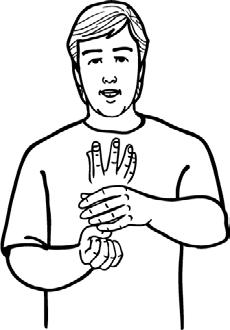
Revitalising Te Reo Māori and NZSL is of paramount importance. Take a few minutes out of your dat to learn and memorise these words. It’s the least we can do.
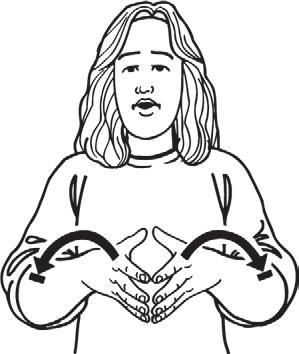

Plant
Grow
Shein.
Clothes shouldn't be cheap. Everyone should earn or receive enough money to be able to afford high quality sustainable clothing - I know they don't yet, but that should be the goal and shopping at shein isn't an excuse for this. So often I hear that no one should be shamed for shopping at Shein, but some people should be. No one needs to spend $200 on clothes made by fucking children who sew desperate pleas for salvation into your seams that won't last hold for more than a day. People who have very limited means do deserve fashionable clothing, but fast fashion isn't a fair solution for anyone - it sets everyone up to fail.
So what is the solution for those less fortunate to whom Shein is the only option? Shop from Shein I suppose, but try and shop for the long term if you can. We can try and buy things and imagine them forever, or for a few weeks. Try and imagine the first option if you can.
Solicited advice is a weekly column where an underqualified anonymous guru answers the questions you want answered. This won’t include the stock-standard, sugar-coated advice you’re used to hearing – we’re talking about the truths that are REALLY on your mind.
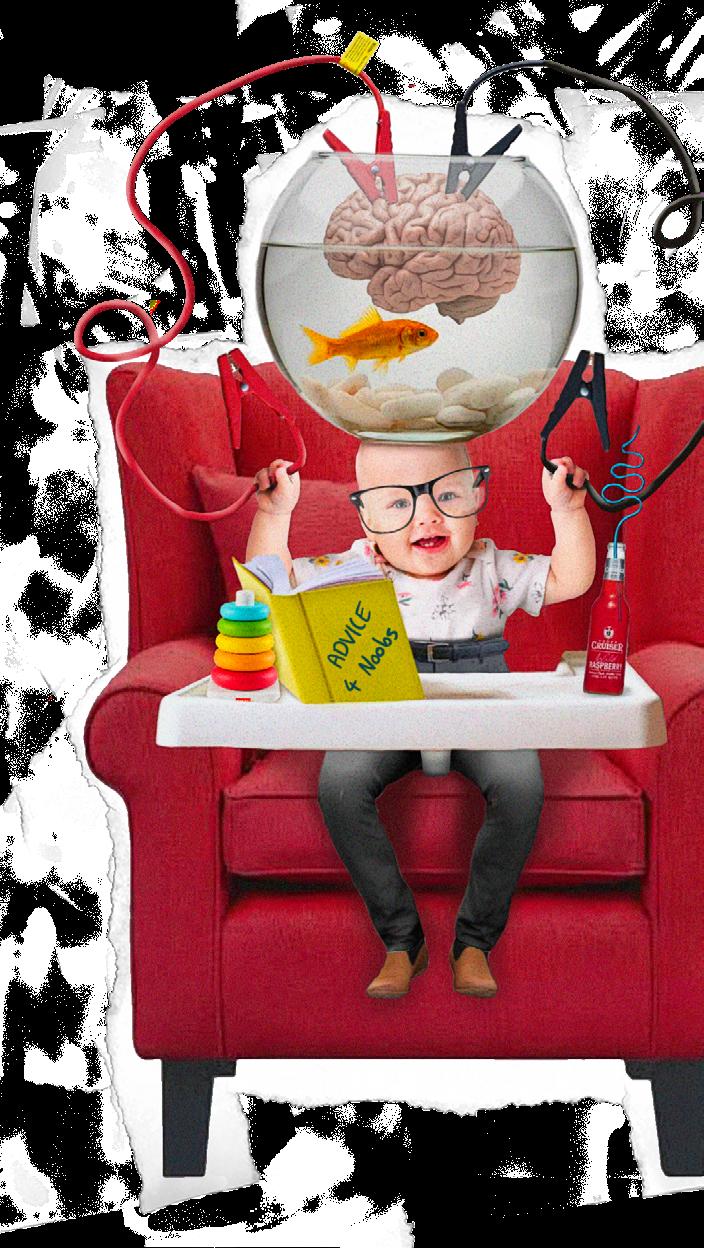



Very. Scarily real.
Easiest change we can make to be more environmentally friendly?
Sounds dumb, but take a moment to think. Think what bin your rubbish needs to go into. Think about whether you will have that Kmart tea towel in 20 years time, because there's no real reason you shouldn't if you buy it now. Think what will happen if your flatmate's glass stays in the landfill bin and ends up there. Think about whether you walk to the shop to pick it up rather than it getting posted in extra packaging. Think for a secondevery decision you make has an impact on the planet that will last your whole lifetime and your kids' too, and theirs'... if we make it that far :)
Do you have a question you’re dying to have answered? DM Massive Magazine on Instagram and look out for next week’s issue. Also, follow us while you’re at it x



Time to book that vacay and shake your ass on a yacht.
Don’t do it. Seriously, stop it.

Time to get an STD check. That rash isn’t going to go away on its own x

Stop looking in the mirror and start thinking about how your stanky breath has been negatively impacting your close relationships.


Time to see a therapist you gaslighting and manipulative little snake.



In: Your beautiful smile. Out: Eating your own toe jam. (Are you okay?)

Stop obsessing over that crusty white man and remember the baddie that you are.

It’s your season, baby. Get out there and serve cunt.



Stop being so hard on yourself, you are killing it in every facet of your life right now #slaytheday (except for you, Emily, you suck).
Remember the ‘s’ in Scorpio stands for sex, not single and sad.











Learn to listen to your friends’ advice and stop self-sabotaging please and thank you.
You are being lied to.

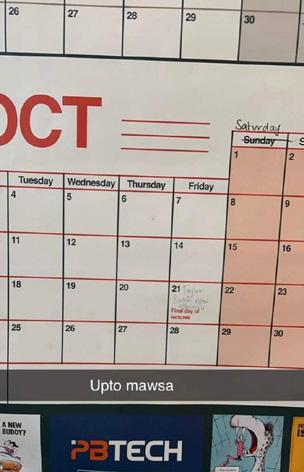
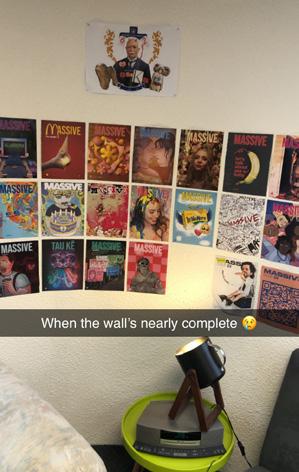



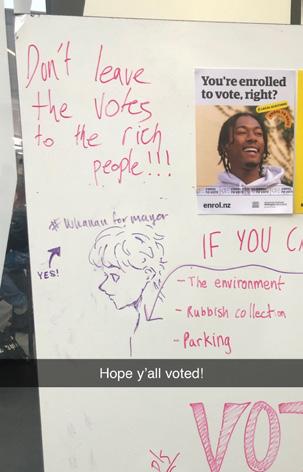
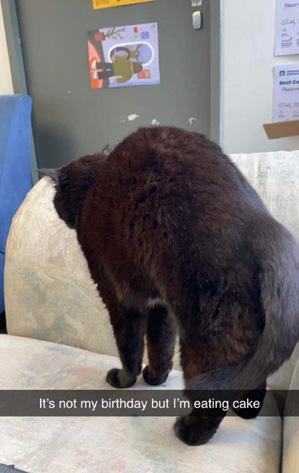
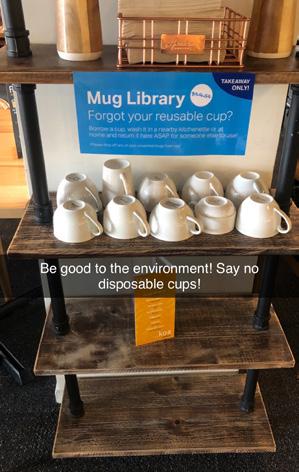
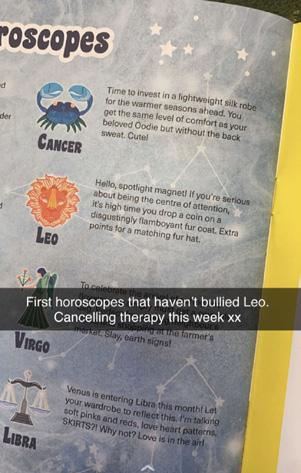








VENUS
BRAZIL,
NEURONS,




TĀKARO,
FREAK,
PLAGIARISM,





THREE,
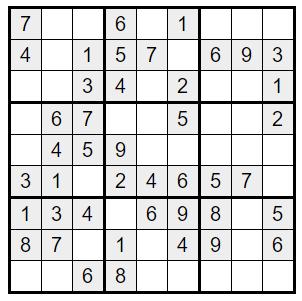
LOCAL,
RICHTERSCALE,
RAID,
EUPHORIA,
In the Massey Universities Sustainability Framework, it mentions: The dedication to becoming a Tiritiled organisation involves an understanding of the importance of "the inseparable relationship between people, landscapes, and waterways" for Maori as well as a need to uphold kaitiakitanga for future generations. This is consistent with a "regenerative" understanding of sustainability in which doing less harm is not the only goal. A regenerative ethos envisions a future in which the climate is stabilised, and our built and natural ecosystems are renewed. What can we do as Distance students? We can be involved in university led initiatives, establish constraints on our carbon emissions, including air travel and seek to be a role model in our community for climate change and sustainable practices. What do you think you can do?
Kia ora koutou tauira! We have a really important event coming up on each campus, same day and time which is our associations’ SGM. The Auckland campus SGM will be held in the Atrium Round Room at 12pm on the 19th of October. It is vital that we get as many students along as possible and receive the support to join the one association that will be funded to support students from 2023 (otherwise we will miss out!) We at ASA will be thanking our class advocates and volunteers on Wednesday the 12th of October in the student lounge, we look to seeing you there. If you are interested in being a student representative in 2023, please get in touch!
Goodluck going into the crunch time! Sustainability is about looking after yourself first and foremost! If you're in need of food and from Welly, pop into the MAWSA office for a $50 food grant! Noo need check your bank account :)


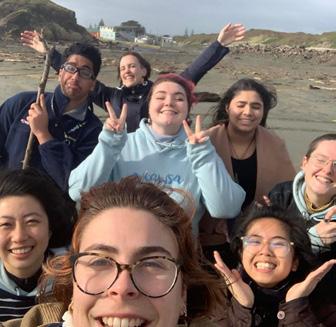
You got this, we are so proud already
Marla Musa
Kia ora koutou! We’re nearing the end of the year now! Ahhhh I hope you are all feeling calm and prepared with exam season fast approaching.And if not, taking care of the planet can help! (this is me attempting to keep on topic with the sustainability theme of this issue) No, but seriously, there's nothing like keeping a plant alive for boosting your self-confidence. Or eating some plant-based meals with lots of veggies can be a good help for your energy levels. I know it can become hard to prioritise yourself around such a stressful time but try to! Spend some time doing something that you love, being kind to yourself (+ the planet haha) and you’ll make it to the semester break!
You’ve got




